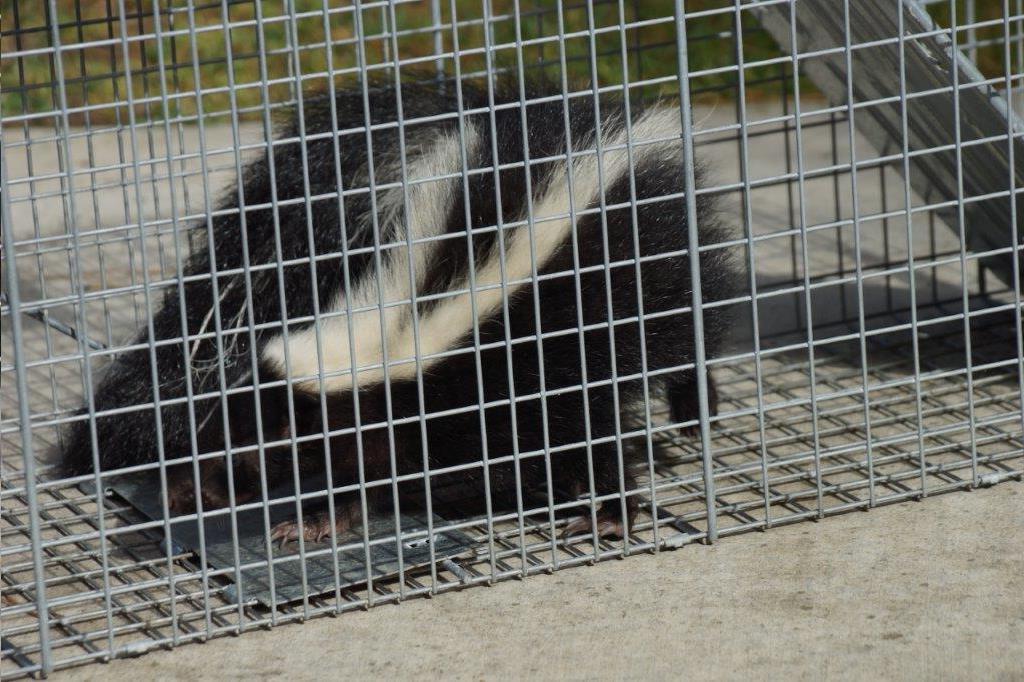
Most animals are equipped with self defense mechanisms that help them defend themselves against predators. Skunks are no exception as they have a strong pair of claws and razor sharp teeth. They can scratch and bite any animal or person that threatens them.
The greatest defense mechanism that skunks possess, however, is their popular skunk smell, capable of deterring even the strongest of predators. After they have tried all possible options to discourage a predator and it fails, skunks are capable of targeting a predator and spraying it in an attempt to get away.
The spray, which is a mixture of sulfur containing compounds such as thiols, is produced in the anal glands located just beside the anus. When the mixture comes in contact with air, it produces a foul smelling odor. These glands, although present in other animals in the family, are only well developed and adapted for self-defense. Although it is well adapted for self-defense, it is mostly not used as an offence in skunks.
During an encounter with a skunk, it may spray anywhere between 5 to 8 times in order to get away from the predator. It can even alternate between each gland as it sprays. The mixture in the spray is so potent that it is capable of immediately repelling even the strongest of predators. Animals have a strong sense of smell and the spray irritates them, making them retreat immediately. It can also cause temporary blindness for up to 15 minutes if sprayed in the eyes.
As great as this spray is, it is not an everlasting resource and if a skunk continues to spray at an offender, sooner or later, it will run out. When skunks run out of spray, it will take about 10 days or so for the glands to replenish. When this happens, the skunk is more or less defenseless. It realizes this and so it conserves the spray, preferring not to waste it. It will take an intense attack for a skunk to use all its spray reserves at once. Adult skunks make numerous attempts to get intruders to turn and walk away before resorting to spraying. It may make warning sounds, stamp its foot, hiss, and raise its tail in an attempt to discourage predators.
If all else fails, then the skunk will spray at the intruder in order to give it enough time to escape. Over the course of evolution, skunks have developed strong muscles around their anal glands which enables them to aim and shoot their spray perfectly at predators. An adult skunk can aim to get the perfect shot from up to 15 feet away. Baby skunks cannot spray so accurately. They can however spray up to 8 times daily.
What happens when they run out?
Skunks are little animals incapable of defending themselves for the most part. The only defense they have is their unpleasant scent which is not everlasting. When a skunk sprays, sooner or later, it will run out. When this happens, the skunk becomes vulnerable to attacks from predators and it's only choice is to retreat before it gets hurt. As there is no way to tell if a skunk has run out of spray or not, it is still important to stay away when you come across them as you may never know when they’ve run out or still have the spray. The spray is extremely unpleasant and difficult to get out. It can linger in place for up to 3 months after spraying. It is therefore best to avoid skunks at all costs because although they do run out, they can spray you before they do.
Go back to the Gadsden wildlife removal home page.